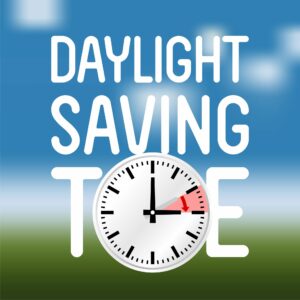
Daylight savings time is this weekend, and that means we’ll lose an hour of sleep as our clocks jump forward an hour. It also means if you’re out until bar close on Saturday night, it’s going to quickly get later (or earlier?) than you expect. If you’re shutting down the bars or just having a few drinks with friends this weekend, please be sure to make good decisions when it comes to getting home safely.
There’s also an interesting link between daylight savings time and DUIs, and it’s the focus of today’s blog. Below, we explain how you may be more likely to get a DUI this weekend thanks to the time shift.
Circadian Rhythm and DUI Tests
The link between daylight savings time and an increased risk for DUI is due to a change in a person’s circadian rhythm. Your circadian rhythm is essentially an internal 24-hour clock. It’s responsible for helping you feel alert in the morning and afternoon and helping you feel tired so you can get some sleep when night falls. However, when we lose an hour, our internal clocks can get thrown off a bit.
With daylight savings time, you may feel tired at different times of the day, or you may have trouble falling asleep, which in turn can leave you feeling more tired the next day. But how does this lead to an increased risk of a DUI? According to research titled “Circadian Variation in Effects of Ethanol in Man,” researchers found evidence that individuals with the same blood alcohol levels performed more poorly on certain physical and psychological tests when tested early in the morning compared to later in the afternoon. Researchers say the impairment was due to the fact that individuals taking these tests were attempting to do so at a time when their body clocks were expecting to be resting.
Since the majority of DUI tests take place between the hours of midnight and 4:00 A.M., it stands to reason that individuals who are getting pulled over are going to be fighting their natural circadian rhythm when attempting to be alert and pass the roadside DUI tests. Moreover, if our circadian rhythm gets disrupted due to daylight savings time, we may have a harder time passing roadside sobriety tests than we would if we had the same BAC, but were taking the test at 11:00 A.M. after a full night’s rest.
So when the clock’s change this weekend, try your best to get your circadian rhythm back on schedule by getting plenty of sleep on Saturday and Sunday night. Aside from helping you in the event you have to perform roadside DUI tests, it will also help boost your concentration and functional ability for other tasks, like driving or working. Other studies have shown that work injuries and car accidents tend to spike on the Monday after daylight savings time, so do yourself a favor and try not to let the time shift affect you too much.
If you end up charged with a DUI or another crime this weekend, please reach out to Avery Appelman and the team at Appelman Law Firm for a free case review.





